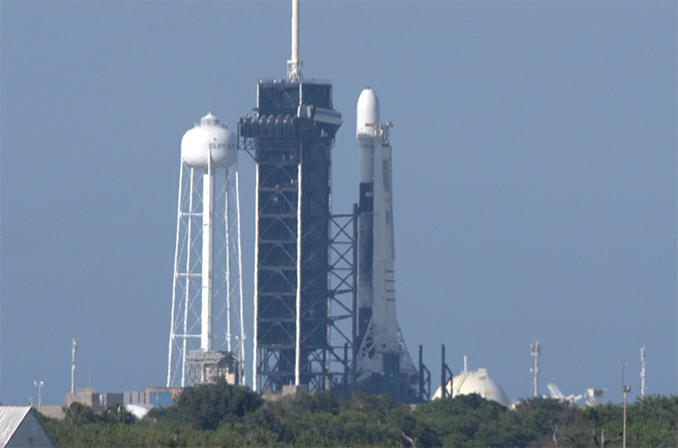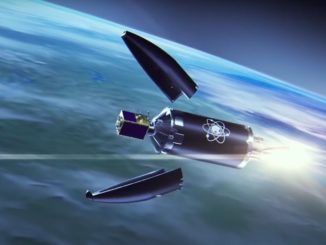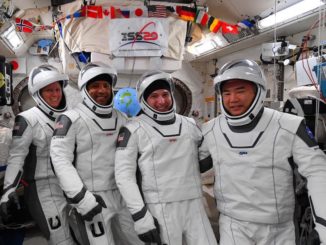
SpaceX scrubbed the planned launch from the Kennedy Space Center of a Falcon 9 rocket Friday with the company’s next 57 Starlink Internet satellites and a pair of commercial Earth-imaging surveillance satellites. Officials did not immediately confirm a new target launch date.
Launch crews at NASA’s Kennedy Space Center in Florida were counting down to liftoff of a 229-foot-tall (70-meter) Falcon 9 rocket at 4:18 p.m. EDT (2018 GMT) Friday from pad 39A at the Kennedy Space Center, but officials said the launch would be postponed a few hours before the scheduled liftoff time.
In a tweet, SpaceX said it was “standing down from today’s Starlink mission.” The company said its “team needed additional time for pre-launch checkouts, but Falcon 9 and the satellites are healthy.”
SpaceX said it will announce a new target launch date once confirmed by the U.S. Space Force’s Eastern Range, which provides launch support for all space missions taking off from Cape Canaveral Air Force Station and the Kennedy Space Center.
The schedule slip sets the stage for two Falcon 9 launches from different pads at Cape Canaveral in the coming days.
SpaceX is preparing to launch a Falcon 9 rocket from pad 40 at Cape Canaveral on Tuesday at 3:55 p.m. EDT (1955 GMT) with the U.S. military’s next GPS navigation satellite.
In a conference call with reporters Friday to discuss the GPS launch, a SpaceX official said the company was still evaluating when the Falcon 9 rocket with the Starlink broadband satellites and BlackSky Earth-imaging payloads might be ready to fly.
An updated airspace warning notice posted on a Federal Aviation Administration website late Friday suggested SpaceX might try again to launch the Starlink/BlackSky rideshare mission Sunday. But the airspace restriction was later deleted, and SpaceX’s drone ship “Of Course I Still Love You” began moving back toward Florida.
The platform was deployed into the Atlantic Ocean for landing of the first stage from the Starlink/BlackSky mission. A separate drone ship, named “Just Read the Instructions,” is on the way to a different location in the Atlantic for the landing of the Falcon 9 first stage after the GPS launch.
Managers are expected to prioritize the GPS launch Tuesday because the mission is for the U.S. Space Force, a key customer for SpaceX. SpaceX did not disclose the reason for the launch delay Friday, but the issue takes more than a few days to resolve, the Starlink launch could be pushed back until after the GPS launch.
Lee Rosen, SpaceX’s vice president of customer operations and integration, said Friday that SpaceX could perform two launches from different pads at Cape Canaveral in relatively short order. He said SpaceX could go forward with another Falcon 9 launch after a review of data from the previous mission, which he said typically takes from a half-day to one day to complete.
Launch companies usually examine flight data from all launches to look for close calls or any other unusual behavior that might impact future missions.
Brig. Gen. Doug Schiess, commander of the 45th Space Wing, said the Eastern Range would also likely be able to support two Falcon 9 launches within 24 hours of each other, if necessary.
Email the author.
Follow Stephen Clark on Twitter: @StephenClark1.



